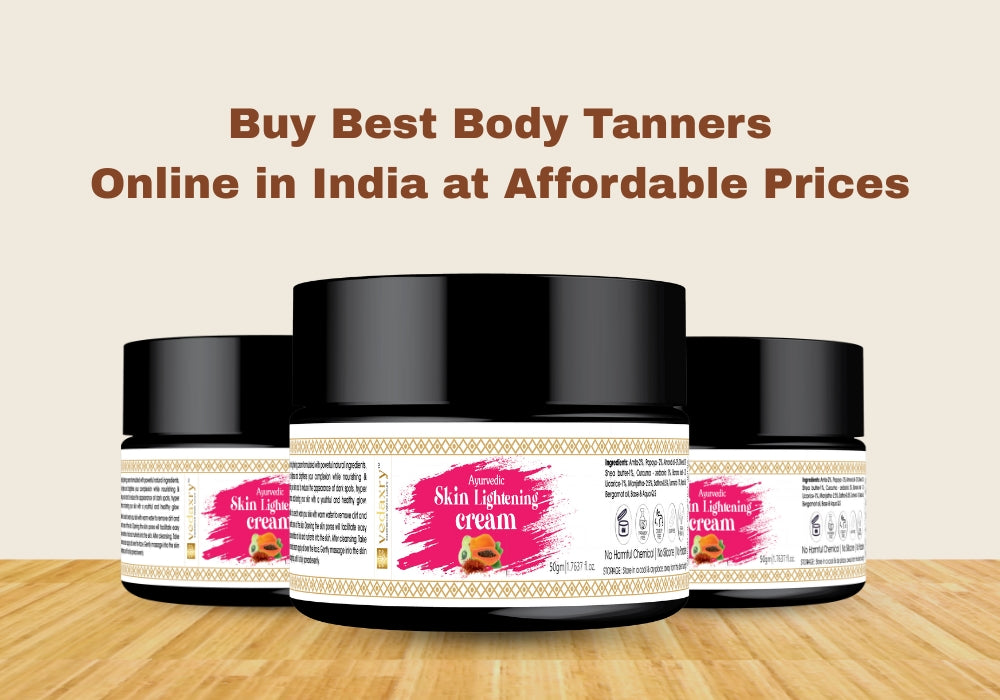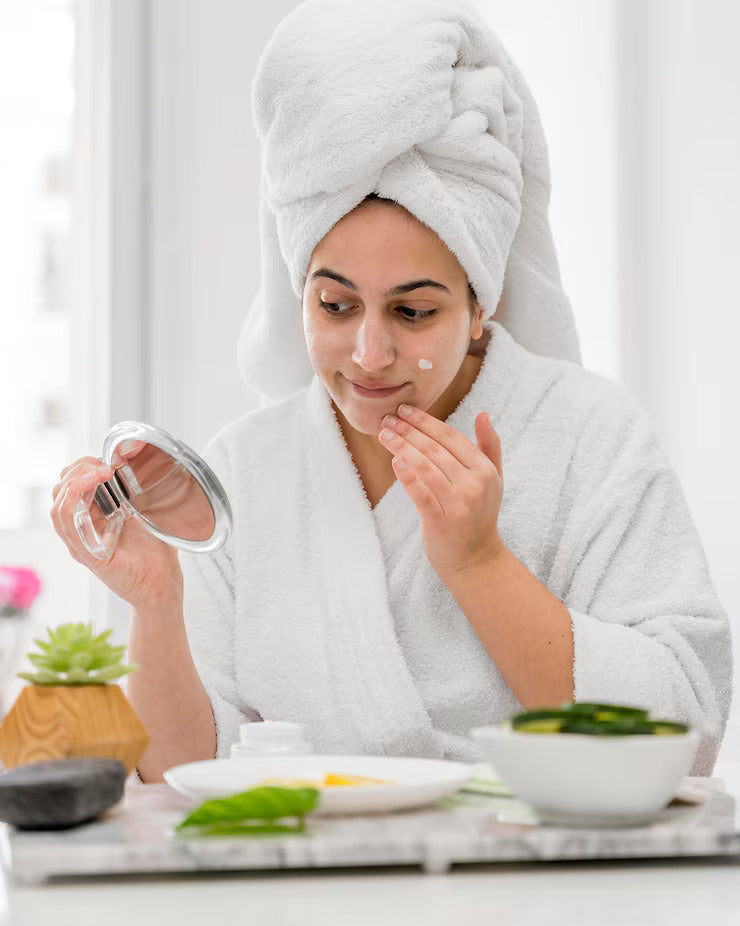Give Your Skin a Fresh Start with Organic Skincare

Did you ever take the time to think about what, precisely, you're putting on your skin each day? There are simply so many skincare products out there, and before you know it, you're swimming in an ocean of them. But what if I were to tell you that the key to glowing, healthy skin isn't hidden in creams that are chock-full of chemicals and synthetic beauty fixes? It's found in nature. And that's exactly why Organic Skincare is a game-changer. Let's embark on this journey together and find out how transitioning to organic skincare can give your skin a fresh start.
Why Organic Skincare?
If you’re anything like me, you’ve probably stood in the beauty aisle at some point, scanning the labels of various skincare products, wondering what half of those ingredients even mean. Words like parabens, sulfates, and phthalates sound more like a science experiment than something you’d want on your skin. That’s where organic skincare comes in—it takes things back to basics, using ingredients sourced from nature, free from synthetic additives and harmful chemicals.
The best part? Organic skincare works with your skin, not against it. Instead of stripping away natural oils or causing irritation, these products nourish and heal. Think of it as feeding your skin the same way you’d feed your body—by choosing wholesome, natural ingredients over artificial and processed ones.
The Incredible Benefits of Organic Skincare
Transitioning to organic skincare isn't cool—it's a lifestyle that's packed with plenty of perks. Here's why:
1. Kind to Your Skin
Have you ever applied a product that has reddened, itched, or irritated your skin? That is typically because of the chemicals present in most everyday skincare products. Organic skincare, however, is replete with soothing ingredients cooperating harmoniously to your skin's natural balance. Irrespective of whether you've got sensitive, oily, dry, or combination skin, organic skincare products are formulated for all skin types without creating unwanted chaos.
2. Nutrient-Rich
Your skin is your body's largest organ, and just like the rest of your body, it is improved by nutrients. Organic skin products have beneficial vitamins, antioxidants, and minerals that are good for the skin as they make it healthier. Ingredients like aloe vera soothe irritation, coconut oil intensely nourishes, and green tea extract resists attacks from the environment.
3. No Hidden Toxins
One of the largest issues with non-organic skincare is that it will contain toxins that your body takes in over time. Ingredients such as artificial fragrances, dyes, and chemical preservatives not only have the potential to redness and irritate your skin but can also cause long-term health issues. With organic skincare, you know that what you're applying to your skin is healthy and safe.
4. Eco-Friendly and Sustainable
Let's discuss something greater than our skin—our planet. Most commercial skincare companies depend on practices that are harmful to the environment, from pollution-based production to ingredients purchased and sold in an unsustainable way. Organic skincare companies employ sustainable growing practices, biodegradable packaging, and cruelty-free testing, so they're an ethically superior option.
5. Works with Your Skin, Not Against It
The majority of conventional beauty lotions have overnight-working chemicals with long-term detrimental effects. Most products strip off the skin of its natural moisturizing factors, and this creates breakouts, premature lines, and dryness. Organic skincare is about growing your skin well, helping your skin develop its own defense system, and nurturing its texture with time.
Switching over: A Guide in Steps
I know—switiching to organic in your skincare routine can be overwhelming, but don't worry, I'm going to guide you through it. We're going to begin with some easy steps that will have you gliding into the switch without any difficulty.
Step 1: Read the Labels
Take a swift look at the label before you buy any skincare product. Check for natural ingredients that sound normal—shea butter, coconut oil, aloe vera, and essential oils. Steer clear of ingredients with long chemical-sounding names, as they're usually artificial additives.
Step 2: Start with the Basics
You don't need to change everything at your skincare routine at one go. Start small by changing your daily cleanser and moisturizer to organic ones. After finding products that are suitable for your skin type, begin adding organic toners, serums, and exfoliators step by step.
Step 3: Listen to Your Skin
Your skin will let you know what it wants—listen to how it adjusts when you change over to organic skin care. Some people go through a temporary transition period when their skin clears out the chemicals, but don't worry. Hold on tight, and you'll be looking at a healthy, natural radiance in no time.
Step 4: DIY Organic Skincare
Feel like taking it a notch further? Even try making your own organic skincare at home! A honey and oatmeal mask can hydrate and soften, and a coconut oil and sugar scrub can lovingly exfoliate your skin. The good news? You get to decide what goes into your product.
The Best Organic Skincare Ingredients to Look For
Now that we’ve talked about why organic skincare is amazing, let’s go over some powerhouse ingredients that can work wonders for your skin:
-
Aloe Vera – Soothes and hydrates irritated skin.
-
Coconut Oil – Provides deep moisture and has antibacterial properties.
-
Shea Butter – Nourishes and heals dry, damaged skin.
-
Green Tea Extract – Fights free radicals and reduces inflammation.
-
Rosehip Oil – Vitamins A and C rich, anti-aging and skin regenerating.
-
Chamomile – Depresses redness and calms sensitive skin.
-
Jojoba Oil – Replicates the natural skin oils, a great moisturizer.
FAQs
1. Is organic skincare appropriate for sensitive skin?
Yes! Organic skincare products contain no irritating chemicals or artificial ingredients, so they're perfect for sensitive skin.
2. Is organic skincare slower to demonstrate results?
Contrary to chemical products that have instantaneous (albeit short-term) effects, natural skincare acts naturally with your skin, so results will be slower but lasting.
3. Is organic skincare good for acne?
Yes! Natural ingredients such as tea tree oil and aloe vera possess antibacterial and anti-inflammatory properties to fight acne.
4. Is organic skincare more expensive?
Although some organic products may be more expensive, their quality ingredients and long-term value are worth the investment in your skin.
5. How do I know if a product truly is organic?
Check the packaging for certification stamps from trustworthy organizations such as USDA Organic, COSMOS Organic, or ECOCERT. Also, check the ingredient label for natural, recognizable ingredients.
Conclusion
Taking care of your skin shouldn’t feel like a chore—it should be a rewarding, nourishing experience. By choosing organic skincare, you’re not only doing what’s best for your skin, but you’re also making a positive impact on the environment.
So, then, are you ready to get your skin a brand new beginning? Welcome in the power of natural skincare, and let nature do what it does best—nurture, heal, and protect. Your skin will thank you

Reviewed By
Dr. Sapna Kangotra
Senior Ayurveda Doctor




Comments